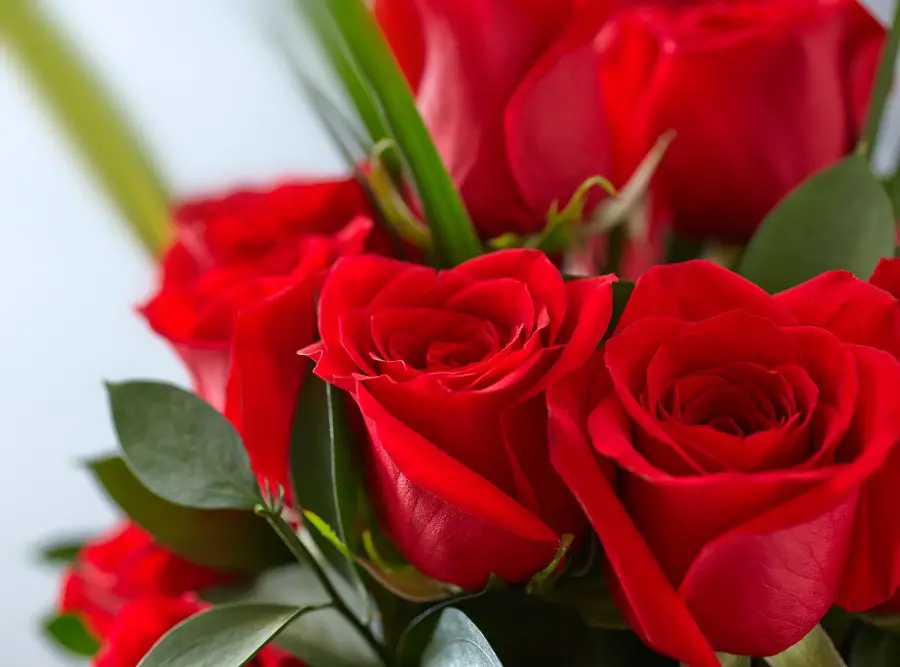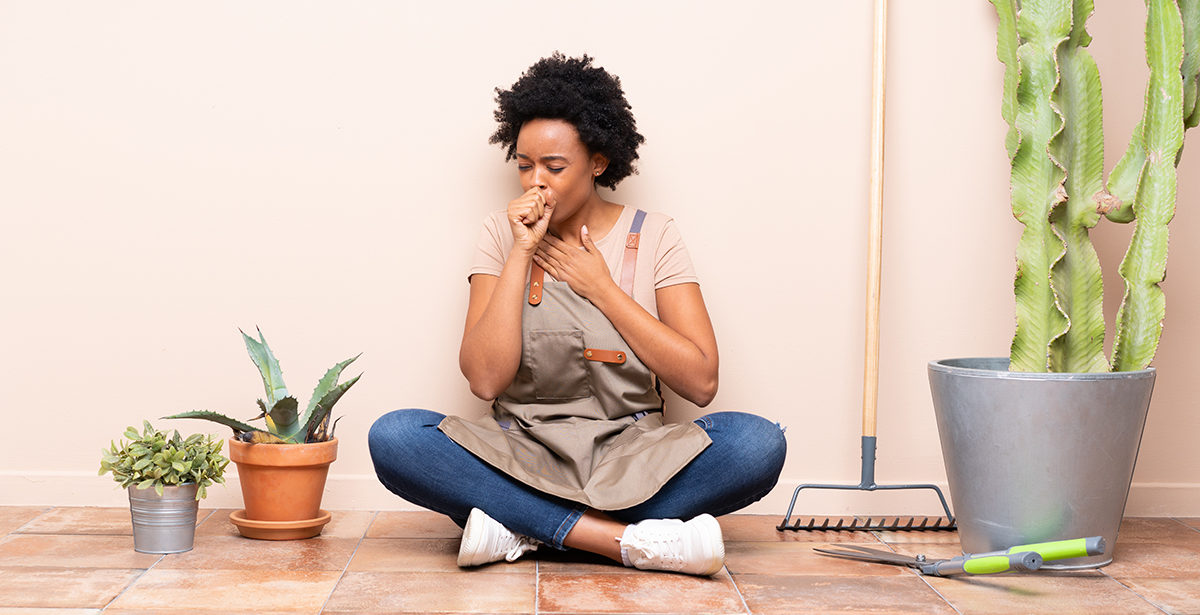Are Roses Bad for Allergies

If you have allergies, you may be wondering if roses are safe for you to be around. After all, they are one of the most popular flowers in the world. The good news is that roses are not typically bad for allergies.
In fact, they are often recommended as a safe flower for people with allergies to enjoy.
If you suffer from allergies, you may want to avoid roses – or at least be aware of the potential risks. Roses are among the most common triggers for allergic reactions, particularly hay fever.
Roses produce pollen, which is one of the main culprits when it comes to allergies.
In fact, pollen from roses can travel up to 50 miles! If you’re allergic to roses, you may experience symptoms such as sneezing, runny nose, and watery eyes.
The best way to avoid an allergy attack is to stay away from roses (and other flowers that produce lots of pollen).
If that’s not possible, try wearing a mask or using anti-allergy medication.
11-Year-Old Girl 'Allergic' to Sunlight | ABC News
Worst Flowers for Allergies
Do you have seasonal allergies? If so, you’re not alone. According to the Asthma and Allergy Foundation of America, more than 50 million Americans suffer from allergies each year.
And while there are many treatments available to help ease allergy symptoms, avoidance is still the best way to manage your condition.
If you’re allergic to pollen, you’ll want to avoid flowers that produce a lot of it. Unfortunately, many of the most popular flowers are high in pollen content.
Here are some of the worst offenders:
1. ragweed: Common ragweed (Ambrosia artemisiifolia) is a widespread weed that’s particularly troublesome for allergy sufferers. It produces a large amount of pollen that can be carried long distances by the wind.
Ragweed blooms from August to November, making it one of the longest-lasting allergy triggers.
2. sunflower: Sunflowers (Helianthus annuus) are beautiful and cheerful plants that are unfortunately high in pollen production. Their large size means they release a lot of pollen into the air, which can be a problem for people with hay fever or other types of allergies.
Sunflowers bloom from late summer into fall.
3.. marigold: Marigolds (Tagetes spp.) are popular garden plants known for their vibrant colors and strong scent.
However, they also produce a significant amount of pollen that can cause problems for people with allergies. Marigolds bloom from early summer through fall.
4..
daisy: Daisies (Bellis perennis) are lovely flowers that contain high levels of both petals and pistils—the two main sources of allergens in flowering plants.
Do Roses Cause Allergies
If you have allergies, you may be wondering if roses are safe to have around. After all, they’re such beautiful flowers. Unfortunately, the answer is that roses can cause allergies in some people.
Roses contain pollen, which is a common trigger for allergies. When the pollen from roses gets into your nose or eyes, it can cause symptoms like sneezing, itching, and watery eyes. If you have asthma, being around rose pollen can also trigger an asthma attack.
If you’re allergic to roses, the best thing to do is to avoid them altogether. But if you really want to enjoy their beauty, there are a few things you can do to make sure you don’t have a reaction. First, try to stay indoors when the pollen count is high outside.
Second, wear gloves when handling roses or anything else that might be covered in their pollen. And finally, use a good quality air filter in your home to help remove any allergens from the air inside.
Hydrangea Allergy Symptoms
Hydrangea allergy symptoms can include runny nose, itchy eyes, sneezing, and coughing. Some people may also experience difficulty breathing or swelling of the throat or face. If you experience any of these symptoms after coming into contact with hydrangeas, it’s important to seek medical attention immediately.
Worst Plants for Allergies
Allergies are a common occurrence in the United States, affecting more than 50 million people. They can be triggered by a variety of things, including dust, pollen, and certain foods. But did you know that some plants can also cause allergies?
There are a number of plants that are known to trigger allergies in people who are sensitive to them. These include ragweed, sagebrush, and cocklebur. If you suffer from allergies, it’s best to avoid these plants altogether.
Other plants that can cause allergic reactions include daisies, sunflowers, and chrysanthemums. These flowers release large amounts of pollen into the air, which can trigger allergies in susceptible individuals. So if you’re planning on having a garden this year, make sure to steer clear of these flowers!

Credit: harkerheightsallergy.com
What Flowers are Not Good for Allergies?
There are many flowers that can cause allergies, but there are also many that are safe for people with allergies. Some of the most common allergenic flowers include daisies, sunflowers, and chrysanthemums. If you have allergies, it is important to avoid these flowers.
Other common allergenic flowers include lilies, tulips, and roses. These flowers can cause severe reactions in some people with allergies. If you have any doubts about whether a flower is safe for you, it is best to consult with an allergist or your doctor before coming into contact with it.
Are Roses Safe for People With Allergies?
Roses are one of the most popular flowers in the world, and they’re also a common trigger for allergies. If you have allergies, you may be wondering if roses are safe for you to be around.
The good news is that roses are generally safe for people with allergies.
The pollen from roses is large and heavy, so it’s not easily airborne and unlikely to cause an allergic reaction. However, if you have severe allergies or asthma, you may want to avoid being around roses altogether just to be safe.
If you do come into contact with rose pollen, you may experience some symptoms like sneezing, watery eyes, and a runny nose.
These symptoms are typically mild and shouldn’t last more than a few hours. However, if your symptoms are severe or persist for longer than a few hours, it’s important to see a doctor as soon as possible.
Overall, roses are relatively safe for people with allergies.
If you have severe allergies or asthma, it’s best to avoid them altogether. Otherwise, you may experience some mild allergy symptoms like sneezing, watery eyes, and a runny nose.
How Do You Know If You are Allergic to Roses?
If you have never been exposed to roses before, it is impossible to know if you are allergic to them. However, if you have had contact with roses and subsequently developed a rash, hives, or difficulty breathing, then you may be allergic to roses. Allergic reactions can occur immediately upon exposure or may take several hours to develop.
If you suspect that you are allergic to roses, it is important to see an allergist for testing.
Do Roses Emit Pollen?
Yes, roses emit pollen. Each flower on a rose bush produces pollen, which is then carried by the wind to other rose bushes where it fertilizes the flowers. The process of pollination results in the formation of new seeds inside the flowers, which eventually turn into fruits that contain the seeds of the next generation of roses.
Conclusion
If you suffer from allergies, you may want to think twice before adding roses to your garden. Although they are beautiful and fragrant flowers, roses can also be a major trigger for allergy symptoms. pollen.
If you are allergic to roses, you may experience symptoms such as sneezing, runny nose, congestion, itchy eyes, and difficulty breathing. If you have severe allergies, contact with rose pollen can even trigger anaphylaxis, a potentially life-threatening reaction. If you are considering planting roses in your garden, talk to your allergist first to see if they are a good fit for you.
